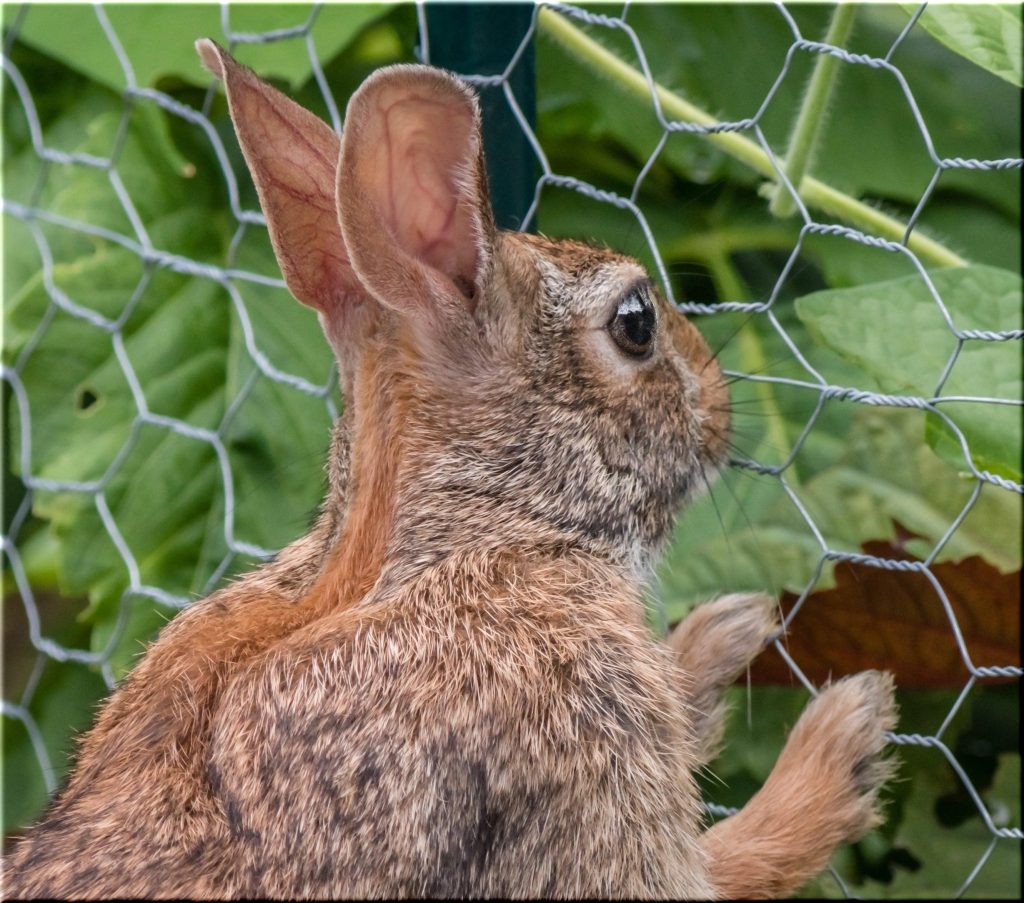Garden
How to Keep Bunnies Out of Your Garden: The Most Effective Methods
It’s disheartening to find your carefully cultivated vegetables or vibrant flower beds nibbled down to the ground. Rabbits, with their adorable appearance, can quickly turn into garden pests, leaving a trail of destruction in their wake. But don’t despair! With a little knowledge and the right strategies, you can effectively deter these furry nibblers and protect your garden. This guide will cover the most effective methods for keeping rabbits out of your garden, from creating strong barriers to understanding their behavior.
The Most Effective Rabbit Deterrent: Fencing and Netting
The best way to keep rabbits out of your garden is to create a physical barrier they can’t penetrate. Fencing is your first line of defense, providing a sturdy and lasting solution. But how do you choose the right fence?
When selecting materials, consider chicken wire, hardware cloth, or deer fencing. Each option has its pros and cons:
- Chicken wire is affordable and readily available, but rabbits can potentially chew through it over time.
- Hardware cloth is much stronger and more resistant to chewing, making it ideal for vegetable gardens or areas with frequent rabbit activity.
- Deer fencing is designed to withstand larger animals like deer, offering the most robust barrier against rabbits. However, it’s also the most expensive option.
Remember, proper installation is crucial for fence effectiveness. To prevent rabbits from jumping over, the fence should be at least 2 feet high. Burying the fence deep enough to prevent digging is also essential, ideally 6 inches or more. Secure the fence to prevent rabbits from squeezing through gaps or creating openings.
For smaller areas or individual plants, bird netting or deer netting provides an alternative. Simply drape the netting over the plants and anchor it securely.
Habitat Removal: Discouraging Rabbits from Staying
Rabbits are creatures of habit and tend to stay in areas with convenient cover and food sources. By removing these attractive elements, you can discourage them from making your garden their home.
- Remove hiding spots: Brush piles, overgrown vegetation, and other hiding spots are magnets for rabbits. Clearing these areas can make your garden less appealing.
- Secure buildings and structures: Rabbits often seek shelter beneath sheds, porches, and decks. Seal any gaps or openings under these structures to prevent them from creating nests.
Repellents: Making Your Garden Less Appealing
Repellents work by making your garden unattractive to rabbits, either through unpleasant smells or a bitter taste.
- Natural repellents: Garlic spray, peppermint oil, and cayenne pepper can deter rabbits with their strong odors. Make your own repellent solutions by blending these ingredients with water and applying them to plants.
- Commercial repellents: Several commercial rabbit repellents are available, often containing ingredients like predator urine or botanical extracts. While effective in deterring some rabbits, they may require frequent reapplication, especially after rain.
It’s important to consider the limitations of repellents. They may not always be effective, especially when food sources are scarce.
Scare Tactics: Creating a Sense of Danger
Scare tactics work on the principle of startling rabbits and creating a sense of danger. While their effectiveness can be temporary, they might deter rabbits from frequent visits.
- Motion-activated sprinklers: These sprinklers release bursts of water when they detect movement, startling rabbits and discouraging them from entering the garden.
- Visual and sound deterrents: Fake owls, flashing lights, reflective tape, and wind chimes can create a sense of unease for rabbits. However, rabbits tend to adapt to these deterrents over time.
For scare tactics to work, consistency is key. Use them regularly and consistently to maintain their effectiveness.
Harnessing Natural Predators
Introducing natural predators, like hawks, owls, and foxes, into your garden can help control rabbit populations. These predators naturally hunt rabbits, creating a natural balance in the ecosystem.
- Attract predators: Creating habitats and food sources for predators can encourage them to make your garden their hunting ground.
- Encourage predator activity: Reduce the use of pesticides and herbicides to promote a healthy ecosystem that supports natural predators.
Remember, introducing predators can have unforeseen consequences. Always consult with local wildlife experts before attempting to attract predators to your garden.
Plant Selection: Choosing Rabbit-Resistant Plants
While you can deter rabbits, choosing rabbit-resistant plants can further minimize damage.
- Vegetables: Rabbits tend to avoid asparagus, onions, leeks, and tomatoes. Consider planting these around more vulnerable vegetables like lettuce and beans to create a protective barrier.
- Flowers: Rabbits typically steer clear of cleomes, geraniums, vincas, and wax begonias.
- Herbs: Basil, mint, oregano, parsley, and tarragon are generally less appealing to rabbits.
Including these plants in your garden design can create a safer environment for your vulnerable crops.
FAQ
How do I tell if rabbits are in my garden?
Look for pea-sized droppings, small piles, or scattered around the garden. Inspect shrubs and outbuildings for signs of digging, bedding down, or tufts of fur caught on branches or buildings. Examine chewed plants for clean cuts, almost like they’ve been trimmed with hand clippers.
What’s the best way to keep rabbits out of my vegetable garden?
The most effective method is to build a sturdy, rabbit-proof fence at least 2 feet high with buried edges to prevent digging.
What should I do if I find a rabbit nest in my garden?
Contact your local wildlife control agency for advice and humane removal options.
Can I use a pet dog to deter rabbits?
While dogs can deter rabbits, they might not always be effective, especially if the rabbits are accustomed to the dog’s presence.
Conclusion
Keeping rabbits out of your garden is an ongoing process, but with a combination of effective methods and a little patience, you can enjoy a thriving and bountiful garden. Remember to create a strong barrier with fencing, remove their hiding spots, and attract natural predators to create a less appealing environment for these pesky pests.
Don’t hesitate to share your tips and tricks for keeping rabbits out of your garden in the comments below! And remember, for more gardening insights and advice, be sure to check out our other articles on the Goodxtop website.


